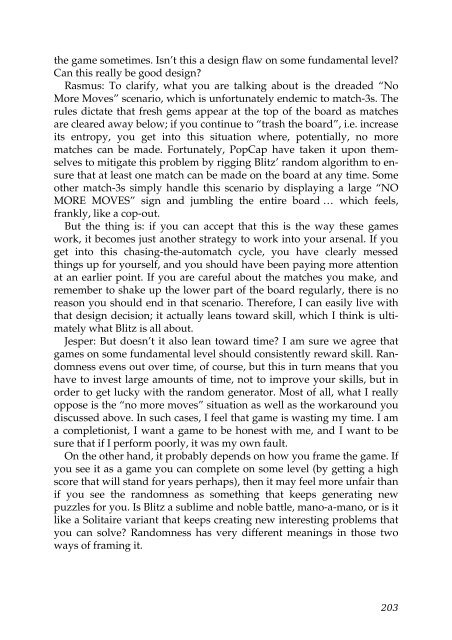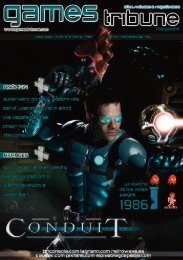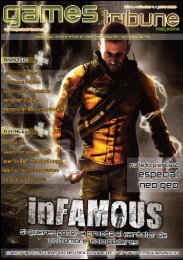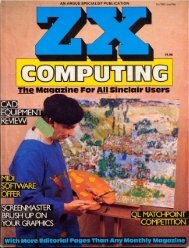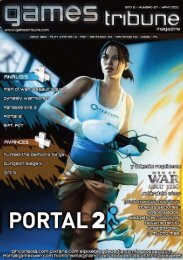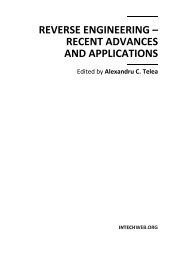Well Played 2.0: Video Games, Value and Meaning - OpenLibra
Well Played 2.0: Video Games, Value and Meaning - OpenLibra
Well Played 2.0: Video Games, Value and Meaning - OpenLibra
Create successful ePaper yourself
Turn your PDF publications into a flip-book with our unique Google optimized e-Paper software.
the game sometimes. Isn’t this a design flaw on some fundamental level?<br />
Can this really be good design?<br />
Rasmus: To clarify, what you are talking about is the dreaded “No<br />
More Moves” scenario, which is unfortunately endemic to match-3s. The<br />
rules dictate that fresh gems appear at the top of the board as matches<br />
are cleared away below; if you continue to “trash the board”, i.e. increase<br />
its entropy, you get into this situation where, potentially, no more<br />
matches can be made. Fortunately, PopCap have taken it upon themselves<br />
to mitigate this problem by rigging Blitz’ r<strong>and</strong>om algorithm to ensure<br />
that at least one match can be made on the board at any time. Some<br />
other match-3s simply h<strong>and</strong>le this scenario by displaying a large “NO<br />
MORE MOVES” sign <strong>and</strong> jumbling the entire board … which feels,<br />
frankly, like a cop-out.<br />
But the thing is: if you can accept that this is the way these games<br />
work, it becomes just another strategy to work into your arsenal. If you<br />
get into this chasing-the-automatch cycle, you have clearly messed<br />
things up for yourself, <strong>and</strong> you should have been paying more attention<br />
at an earlier point. If you are careful about the matches you make, <strong>and</strong><br />
remember to shake up the lower part of the board regularly, there is no<br />
reason you should end in that scenario. Therefore, I can easily live with<br />
that design decision; it actually leans toward skill, which I think is ultimately<br />
what Blitz is all about.<br />
Jesper: But doesn’t it also lean toward time? I am sure we agree that<br />
games on some fundamental level should consistently reward skill. R<strong>and</strong>omness<br />
evens out over time, of course, but this in turn means that you<br />
have to invest large amounts of time, not to improve your skills, but in<br />
order to get lucky with the r<strong>and</strong>om generator. Most of all, what I really<br />
oppose is the “no more moves” situation as well as the workaround you<br />
discussed above. In such cases, I feel that game is wasting my time. I am<br />
a completionist, I want a game to be honest with me, <strong>and</strong> I want to be<br />
sure that if I perform poorly, it was my own fault.<br />
On the other h<strong>and</strong>, it probably depends on how you frame the game. If<br />
you see it as a game you can complete on some level (by getting a high<br />
score that will st<strong>and</strong> for years perhaps), then it may feel more unfair than<br />
if you see the r<strong>and</strong>omness as something that keeps generating new<br />
puzzles for you. Is Blitz a sublime <strong>and</strong> noble battle, mano-a-mano, or is it<br />
like a Solitaire variant that keeps creating new interesting problems that<br />
you can solve? R<strong>and</strong>omness has very different meanings in those two<br />
ways of framing it.<br />
203


